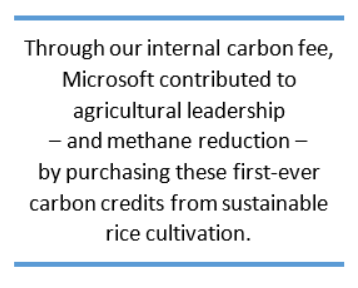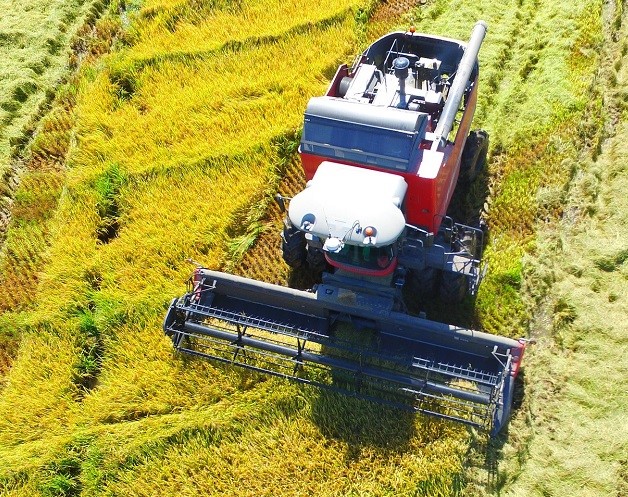Rice farmers are among the champions of sustainability, leading agriculture to a lower-carbon future.
In the United States, agriculture produces nine percent of carbon emissions, and rice cultivation is responsible for ten percent of overall agricultural carbon emissions. Globally, rice cultivation is one of the largest human sources of methane emissions. If we can change the way rice is cultivated, we have the potential to significantly reduce societal carbon emissions.
Leading the way are Whitaker Farms, Isbell Farms, Hook Family Farms and Florenden Farms, who formed the sustainable rice alliance, “Nature’s Stewards”, along with three additional farmers from Mississippi and California. This year, these innovators proved that, through new cultivation methodologies, rice farmers can measurably reduce methane emissions. These reductions can be turned into carbon credits that are then sold on the voluntary carbon market.
They achieved these reductions by taking a different, more sustainable approach to rice cultivation. Rather than soaking fields continuously in four inches of water, one of the project activities the farmers implemented was “alternative – wet – drying” (AWD). AWD uses less water overall – about 30 percent less – and that alters the soil chemistry in a way that halts the production of methane. The savings are considerable – reductions can be as high as 60-90 percent, and all without impacting rice yield.
 The quantification of these emission reductions is not only helpful to the farmers’ quest to improve yield while using fewer resources; the data also allowed this project to generate the first-ever voluntary carbon credits from rice farmers. The credits were approved by the American Carbon Registry (ACR), which writes standards, verifies results and maintains carbon databases.
The quantification of these emission reductions is not only helpful to the farmers’ quest to improve yield while using fewer resources; the data also allowed this project to generate the first-ever voluntary carbon credits from rice farmers. The credits were approved by the American Carbon Registry (ACR), which writes standards, verifies results and maintains carbon databases.
Microsoft purchased these carbon credits, to help offset our emissions, as part of our commitment to operating carbon neutral. In doing so, we’re addressing our company’s impact by supporting local, innovative and sustainable agricultural practices.
As a Microsoft leader in the U.S. Southeast, I am particularly excited about this local project. Agriculture in Mississippi alone is a $7.4 billion industry, employing roughly 260,000 people. That makes it the number one industry in the state, comprising nearly 20 percent of the state’s overall workforce.
Change and innovation involve risk, and there is no exception for the farmer. Through new approaches like this one, farmers can use fewer resources and derive additional income, while doing good for the planet.
This project is just one of the ways Microsoft is working to advance and support precision agriculture. We’re also investing as a company in efforts to accelerate precision agriculture, through projects like FarmBeats and partnerships with large agricultural entities like Land O’Lakes. Through our investments and technologies, we’re excited to play a role in accelerating sustainable agriculture and a more sustainable future – for the Mississippi Delta, the United States, and the world.

